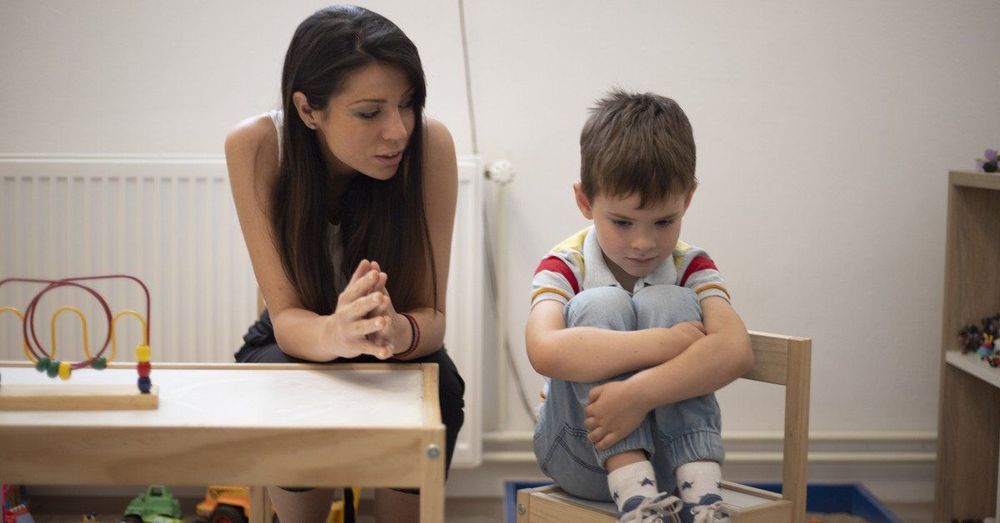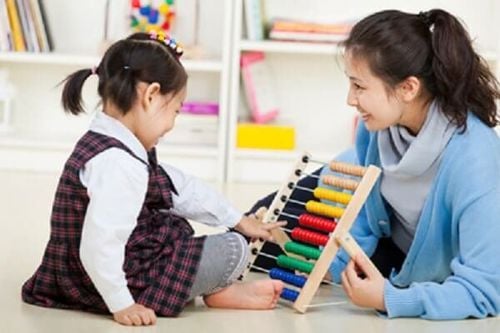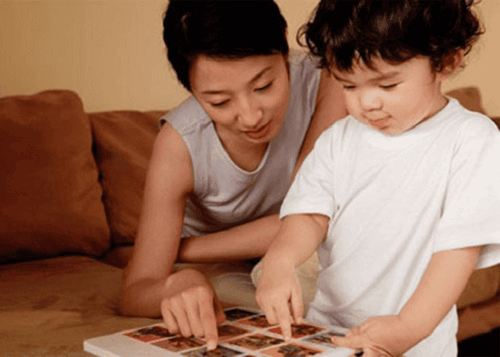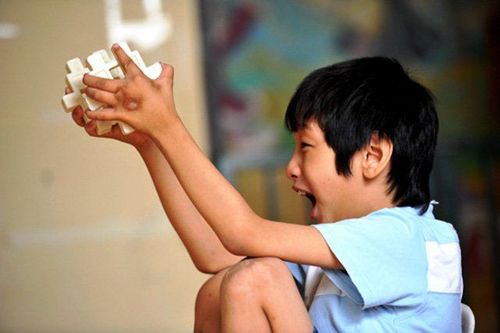This is an automatically translated article.
Posted by Master Dang Thi Thanh Tung - Psychologist - Unit of Regenerative Medicine Clinic and Educational Psychology - Vinmec Times City International Hospital
Most parents, when taking autistic children out, participating in family activities with friends and relatives is a big obsession. However, if parents are aware of the importance of this visit, it will help foster the "maturing time", teach autistic children many things, provide great emotional support and encouragement.
Building and maintaining interactive relationships with friends and relatives is very important for families and children. However, not every visit is easy for both children and parents.
So to make this visit, what do parents and children with autism need to prepare? A few small suggestions below hope to help parents gain skills to raise autistic children well.
1. Parents need to make a list of things they will bring on the trip
During that visit, parents should be careful not to forget special items such as: food, drinks, toys, favorite items or clothes to change.
Besides, parents also need to talk in advance with friends and relatives (where they are visiting) about their child's condition and explain it so that they can understand and can support themselves and their children when needed.
For example: how old are you, male or female, what are your current strengths and difficulties? What support will I need from family/friends? For example: helping caregivers to eat, supporting cooperation when children have screaming, panicking....
2. Share the trip with your child in advance
Parents talk and teach children about the visit by story or by picture schedule:
Example: Tell a child with autism what we will need to do before we leave the house, will wear When going out to a relative's house, what means of transport will we go there or on foot,...
Parents can also briefly describe where the child is going and the activities that take place there such as : going to Uncle A's house or Uncle B's house, I will be able to do activities with him/her. After that, I have a meal with my family, then have a lunch break, in the afternoon I will watch a movie together for 30 minutes, then play freely, at 4 pm I go home....
The more detailed the schedule, the easier it is to understand. with children. If the child has language, guide by telling a story about an upcoming outing and instructing him on appropriate emotional responses, asking what he likes and doesn't like?
If the child does not yet have the language, we can build a schedule with pictures to make it easier for the child to visualize when preparing a visit to a friend or relative. Accordingly, parents can let children carry that schedule along so they can look at it and continue the trip. This also prevents children from forgetting or panicking easily when they do not remember or do not know what will happen next.
SEE ALSO: Special education program to treat children with autism

3. Teach your child how to visualize the whole visit
Children with autism can easily accept going out of the house with their parents to visit places. Accordingly, parents also need to accompany their children throughout the process of visiting friends and relatives' homes by closely following and introducing children to new places.
For example, when going to a relative's house, parents can introduce their children to the house, its members and talk about the rooms in the house. In addition, parents can also teach children what is allowed, not allowed, should or should not do during this visit.
4. With the help of loved ones
With the help and guidance of loved ones, full information will help children with autism have wonderful experiences outside of their own home. Accordingly, parents also educate autistic children a lot about schedules, timetables, teach children how to interact with strangers. In particular, children also learn activities in daily life.
Thereby, children also learn a lot about relationships: how to interact, accept to interact with others in a new environment, learn necessary skills when going to unfamiliar places.
After a few visits to friends and relatives' houses, children will gradually get used to and more comfortable with their surroundings without feeling panic and discomfort anymore.
With the love, perseverance and efforts of parents, children will have moments of relaxation and useful thoughts instead of struggling with children in a strange environment. This is also the motivation for parents and children to have more opportunities to interact and interact, to form many good qualities, to develop more instincts in children with autism.
Please dial HOTLINE for more information or register for an appointment HERE. Download MyVinmec app to make appointments faster and to manage your bookings easily.














